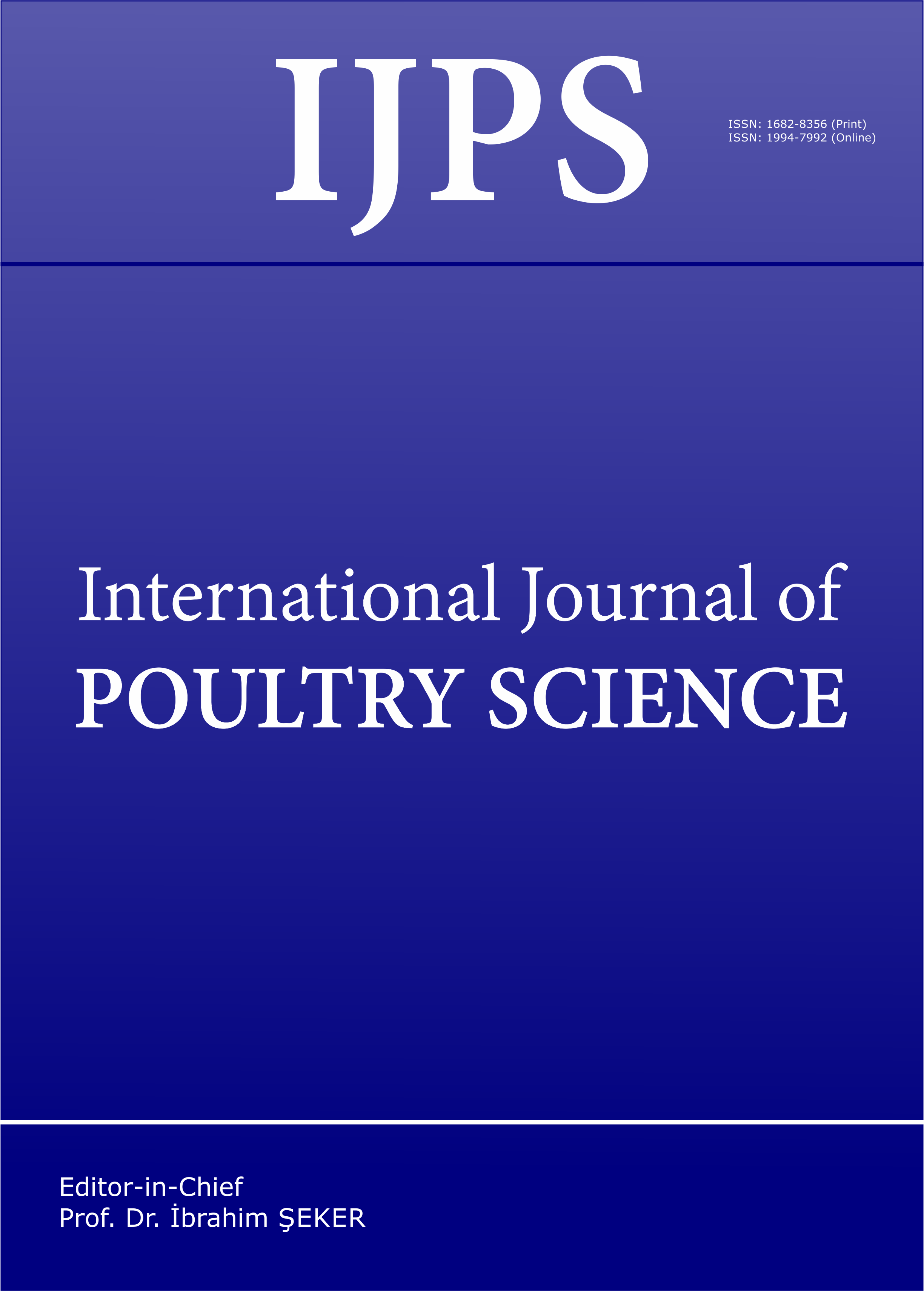Length of the Developmental Period of Turkey Eggs Affects Cardiac Physiology and Subsequent Embryo Survival
DOI:
https://doi.org/10.3923/ijps.2007.95.101Keywords:
Cardiac physiology, embryo survival, length of incubationAbstract
The relationship describing eggshell conductance constants (k) suggests that eggshell conductance (G) is directly related to the length of the incubation period, but inversely with the weight of the egg. Prior studies showed clearly that G is a factor in cardiac health. We tested the hypothesis in the current study that the length of the incubation period may be a factor along with G that affects cardiac physiology and embryo survival. Incubation temperatures were reduced stepwise by 0.2oC in three treatments (37.5, 37.3 and 37.1oC) to prolong embryo developmental periods. The length of the developmental period was increased concomitantly in preliminary trials by 6 and 12 h, respectively by the 37.3 and 37.1oC treatments compared to 37.5oC. Fertilized eggs were incubated using the three temperatures in each of three independent trials. The time of hatching was closely noted and embryo survival was compared among treatments. Embryo heart rates and cardiac physiology in each group were observed. Long developmental periods reduced heart rates in a stepwise fashion and improved embryo survival and cardiac physiology. Thus, cardiomyopathy may be influenced by the length of the developmental period of turkey embryos because longer periods facilitated energy metabolism for myocardial function. Longer developmental periods would be easier to manage than G and may contribute to better turkey embryo viability late in development
Downloads
Published
Issue
Section
License
Copyright (c) 2007 Asian Network for Scientific Information

This work is licensed under a Creative Commons Attribution 4.0 International License.
This is an open access article distributed under the terms of the Creative Commons Attribution License, which permits unrestricted use, distribution and reproduction in any medium, provided the original author and source are credited.

